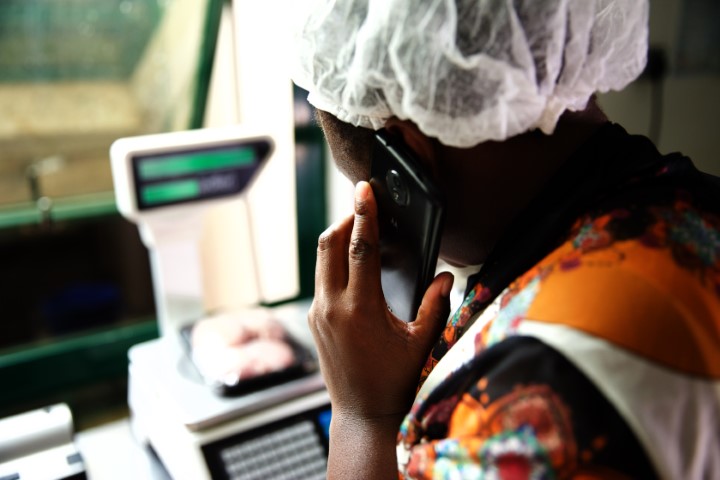By Wadzi Comfort
Over the course of the past decade, the growth of jobtech platforms has revolutionized the world of work. The use of mobile telephony and the internet, advancements in artificial intelligence, and the expansion of the data economy have all contributed to the expansion of the jobtech sector. Through apps, it is now possible to order food, find a nanny or plumber, or hire freelancers from anywhere in the world to perform various tasks. This proliferation of jobtech platforms lies at the intersection of digital innovation and changing employment trends and is transforming the future of work as we know it.
Emerging insights about the gendered dynamics of digital work and about women’s experiences of jobtech platform work across different economic realities points to the fact that these advancements have opened up numerous opportunities for women, including economic empowerment financial and social independence, flexibility, and digital inclusion against the backdrop of gender-based underrepresentation. At the same time, however, obstacles remain that prevent women from equitable participation and the leveraging of jobtech platforms to access quality work. As we commemorate this International Women’s Day, we shine a spotlight on the gendered experiences of women participating in the jobtech sector.
The rise of jobtech presents particular opportunities for young women in Africa
Jobtech can provide increased access to work and increased gender equality as more nimble, innovative organizations come in, disrupting sectors that are traditionally male.
According to research by the Consultative Group to Assist the Poor (CGAP), 70-80% of women in all sectors believe that jobtech work opportunities have created new income opportunities for them. Additionally, the International Finance Corporation’s (IFC) 2021 report on Women and E-commerce in Africa found that women represent over half of sellers on Jumia – a Pan-African technology company that is built around a marketplace, logistics service, and payment service in Nigeria and Kenya.
Jobtech contributes to improvements in flexibility and the suitability of work. CGAP’s research showed that far more women in emerging markets than men- 51% vs 30% – worked part-time on platforms (1-6 hours a day). It explained that this was largely due to enabling mothers with multiple responsibilities to access a path to earn supplementary income. The Overseas Development Institute (ODI) 2019 report Women in the gig economy found that 74% of women on digital work platforms in South Africa could balance work and family commitments better due to the ability to choose work hours around their lifestyle.

However, jobtech does not automatically solve all problems, and barriers remain to accessing jobtech platforms
Jobtech platforms do not necessarily deal with common livelihoods barriers for women including lack of access to resources and assets including technology and financial assets, lack of family support, fear of earning too much and having businesses taken over by male relatives, care responsibilities, reputation in the community, safe and affordable transportation, and a lack of networks.
Another challenge for women in the platform economy is the existence of gender pay gaps on jobtech platforms, with hourly average earnings of women on freelance platforms being less than men. These findings are in line with the existing literature, which shows higher hourly earnings for men compared to women performing similar work.
Furthermore, gendered social norms carry over from the analogue into the digital world, with gendered work patterns continuing on platforms. The jobtech sector is subject to the same patriarchal attitudes that affect offline work. This is reflected in types of work, pay, and challenges, with women being more likely to be engaged in domestic work online than ride-hailing, and online trolling and harassment being more likely to happen to women than men.
While jobtech offers many opportunities for women, obstacles still remain for women seeking to access decent work in the jobtech sector. There is a need for gender-forward practices to address these obstacles and work towards creating a more inclusive and equitable jobtech economy.
There is a role to be played by jobtech platforms, funders, and policy makers
For jobtech ventures, the integration of gender-inclusive business practices is one place to start by bringing to bear innovative business model ideation that solves for the barriers that women face while advancing revenue growth. A recent exploration on gender-forward business practices for digital platforms by Value for Women and Caribou Digital recommends collating and analysing jobtech product analytics that disaggregate by gender, as well as conducting market research and front-line worker training from a gendered lens.
Funders can play a role by de-risking gender inclusive product and feature design for jobtech ventures through a combination of grant funding and technical assistance in designing gender-forward business practices.
While there is a growing body of evidence on the gendered experience of workers on jobtech platforms, there is a pressing need for more research and analysis from a gender intersectional perspective. The more insights that are gathered and shared, the more evidence-based policymaking and product innovation women in jobtech can benefit from.

We’re launching an intervention to see how to improve outcomes for women on jobtech platforms in Africa
With generous funding from the Children’s Investment Fund Foundation, over the next 18 months, the Jobtech Alliance will be conducting a series of research projects and pilots to see how we can improve gendered outcomes on jobtech platforms. We’ll be running ‘sprints’ with at least six platforms across Africa, supporting product and operational design to: a) reduce barriers to access for women; and b) to maximise outcomes by women on the platforms. This could be through gender-sensitive product design, changes to operational processes, new marketing campaigns targeted at women, or whatever the unique needs of the platforms and users are. Our partner, Qhala, will also be incubating a worker community, to learn how improving rights of female digital workers improves their outcomes. We’ll be producing both formative and reflecting research, sharing what we learn from both our failures and successes.
Please get in touch if you can see opportunities for collaboration.

Good snapshot of jobtech…Really interested in learning more.